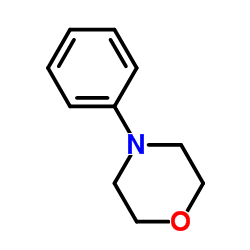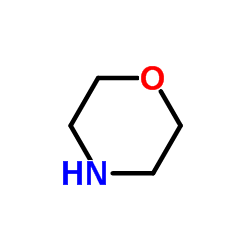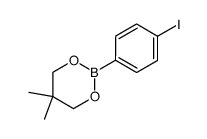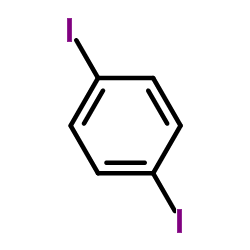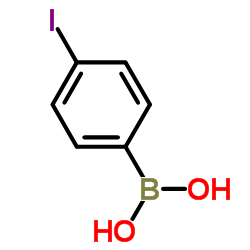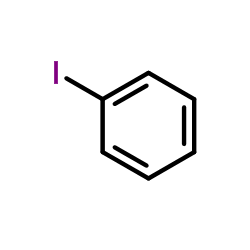87350-77-4
| Name | 4-(4-iodophenyl)morpholine |
|---|---|
| Synonyms |
N-(4-iodophenyl)morpholine
1-Iodo-4-(morpholin-4-yl)benzene Morpholine,4-(4-iodophenyl) 4-Iodomorpholinobenzene 4-(4-Iodophenyl)-morpholine 4-(4-Iodophenyl)morpholine |
| Density | 1.7±0.1 g/cm3 |
|---|---|
| Boiling Point | 358.6±37.0 °C at 760 mmHg |
| Melting Point | 146ºC |
| Molecular Formula | C10H12INO |
| Molecular Weight | 289.113 |
| Flash Point | 170.6±26.5 °C |
| Exact Mass | 288.996338 |
| PSA | 12.47000 |
| LogP | 2.76 |
| Vapour Pressure | 0.0±0.8 mmHg at 25°C |
| Index of Refraction | 1.614 |
Synonym:None Known Section 2 - COMPOSITION, INFORMATION ON INGREDIENTS
Risk Phrases: 20/21/22 36/37/38 Section 3 - HAZARDS IDENTIFICATION EMERGENCY OVERVIEW
Harmful by inhalation, in contact with skin and if swallowed. Irritating to eyes, respiratory system and skin. Potential Health Effects Eye: Causes eye irritation. May cause chemical conjunctivitis. Skin: Causes skin irritation. Harmful if absorbed through the skin. Ingestion: Harmful if swallowed. May cause gastrointestinal irritation with nausea, vomiting and diarrhea. Inhalation: Harmful if inhaled. Causes respiratory tract irritation. Chronic: No information found. Section 4 - FIRST AID MEASURES Eyes: Immediately flush eyes with plenty of water for at least 15 minutes, occasionally lifting the upper and lower eyelids. Get medical aid. Skin: Get medical aid. Flush skin with plenty of water for at least 15 minutes while removing contaminated clothing and shoes. Wash clothing before reuse. Ingestion: Never give anything by mouth to an unconscious person. Get medical aid. Do NOT induce vomiting. If conscious and alert, rinse mouth and drink 2-4 cupfuls of milk or water. Inhalation: Remove from exposure and move to fresh air immediately. If not breathing, give artificial respiration. If breathing is difficult, give oxygen. Get medical aid. Notes to Physician: Treat symptomatically and supportively. Section 5 - FIRE FIGHTING MEASURES General Information: As in any fire, wear a self-contained breathing apparatus in pressure-demand, MSHA/NIOSH (approved or equivalent), and full protective gear. During a fire, irritating and highly toxic gases may be generated by thermal decomposition or combustion. Extinguishing Media: Use water spray, dry chemical, carbon dioxide, or appropriate foam. Section 6 - ACCIDENTAL RELEASE MEASURES General Information: Use proper personal protective equipment as indicated in Section 8. Spills/Leaks: Clean up spills immediately, observing precautions in the Protective Equipment section. Sweep up or absorb material, then place into a suitable clean, dry, closed container for disposal. Avoid generating dusty conditions. Provide ventilation. Section 7 - HANDLING and STORAGE Handling: Minimize dust generation and accumulation. Avoid contact with eyes, skin, and clothing. Keep container tightly closed. Avoid ingestion and inhalation. Use with adequate ventilation. Wash clothing before reuse. Storage: Store in a tightly closed container. Store in a cool, dry, well-ventilated area away from incompatible substances. Section 8 - EXPOSURE CONTROLS, PERSONAL PROTECTION Engineering Controls: Facilities storing or utilizing this material should be equipped with an eyewash facility and a safety shower. Use adequate ventilation to keep airborne concentrations low. Exposure Limits CAS# 87350-77-4: Personal Protective Equipment Eyes: Wear appropriate protective eyeglasses or chemical safety goggles as described by OSHA's eye and face protection regulations in 29 CFR 1910.133 or European Standard EN166. Skin: Wear appropriate protective gloves to prevent skin exposure. Clothing: Wear appropriate protective clothing to prevent skin exposure. Respirators: A respiratory protection program that meets OSHA's 29 CFR 1910.134 and ANSI Z88.2 requirements or European Standard EN 149 must be followed whenever workplace conditions warrant respirator use. Section 9 - PHYSICAL AND CHEMICAL PROPERTIES Physical State: Solid Color: brown Odor: Not available. pH: Not available. Vapor Pressure: Not available. Viscosity: Not available. Boiling Point: Not available. Freezing/Melting Point: 131-133 deg C Autoignition Temperature: Not available. Flash Point: Not available. Explosion Limits, lower: Not available. Explosion Limits, upper: Not available. Decomposition Temperature: Solubility in water: Specific Gravity/Density: Molecular Formula: C10H12INO Molecular Weight: 289.11 Section 10 - STABILITY AND REACTIVITY Chemical Stability: Stable at room temperature in closed containers under normal storage and handling conditions. Conditions to Avoid: Dust generation. Incompatibilities with Other Materials: Oxidizing agents. Hazardous Decomposition Products: Carbon monoxide, oxides of nitrogen, carbon dioxide, hydrogen iodide. Hazardous Polymerization: Has not been reported. Section 11 - TOXICOLOGICAL INFORMATION RTECS#: CAS# 87350-77-4 unlisted. LD50/LC50: Not available. Carcinogenicity: 4-(4-Iodophenyl)morpholine - Not listed by ACGIH, IARC, or NTP. Section 12 - ECOLOGICAL INFORMATION Section 13 - DISPOSAL CONSIDERATIONS Dispose of in a manner consistent with federal, state, and local regulations. Section 14 - TRANSPORT INFORMATION IATA Shipping Name: TOXIC SOLID, ORGANIC, N.O.S. Hazard Class: 6.1 UN Number: 2811 Packing Group: III IMO Shipping Name: TOXIC SOLID, ORGANIC, N.O.S. Hazard Class: 6.1 UN Number: 2811 Packing Group: III RID/ADR Shipping Name: TOXIC SOLID, ORGANIC, N.O.S. Hazard Class: 6.1 UN Number: 2811 Packing group: III Section 15 - REGULATORY INFORMATION European/International Regulations European Labeling in Accordance with EC Directives Hazard Symbols: XN Risk Phrases: R 20/21/22 Harmful by inhalation, in contact with skin and if swallowed. R 36/37/38 Irritating to eyes, respiratory system and skin. Safety Phrases: S 22 Do not breathe dust. S 24/25 Avoid contact with skin and eyes. S 36/37/39 Wear suitable protective clothing, gloves and eye/face protection. WGK (Water Danger/Protection) CAS# 87350-77-4: No information available. Canada None of the chemicals in this product are listed on the DSL/NDSL list. CAS# 87350-77-4 is not listed on Canada's Ingredient Disclosure List. US FEDERAL TSCA CAS# 87350-77-4 is not listed on the TSCA inventory. It is for research and development use only. SECTION 16 - ADDITIONAL INFORMATION N/A |
| Symbol |

GHS07 |
|---|---|
| Signal Word | Warning |
| Hazard Statements | H302 |
| Hazard Codes | Xi: Irritant; |
| Risk Phrases | 22-52/53 |
| RIDADR | NONH for all modes of transport |
| HS Code | 2934999090 |
|
~95% 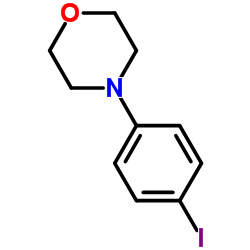
87350-77-4 |
| Literature: Zolfigol, Mohammad Ali; Khazaei, Ardeshir; Kolvari, Eskandar; Koukabi, Nadiya; Soltani, Hamid; Behjunia, Maryam Helvetica Chimica Acta, 2010 , vol. 93, # 3 p. 587 - 594 |
|
~94% 
87350-77-4 |
| Literature: Xu, Gang; Wang, Yan-Guang Organic Letters, 2004 , vol. 6, # 6 p. 985 - 987 |
|
~66% 
87350-77-4 |
| Literature: Matsuda, Naoki; Hirano, Koji; Satoh, Tetsuya; Miura, Masahiro Angewandte Chemie - International Edition, 2012 , vol. 51, # 15 p. 3642 - 3645 |
|
~55% 
87350-77-4 |
| Literature: Lu, Zhikuan; Twieg, Robert J.; Huang, Songping D. Tetrahedron Letters, 2003 , vol. 44, # 33 p. 6289 - 6292 |
|
~% 
87350-77-4 |
| Literature: Angewandte Chemie - International Edition, , vol. 51, # 15 p. 3642 - 3645 |
|
~64% 
87350-77-4 |
| Literature: Kienle, Marcel; Dubbaka, Srinivas Reddy; Del Amo, Vicente; Knochel, Paul Synthesis, 2007 , # 8 p. 1272 - 1278 |
|
~% 
87350-77-4 |
| Literature: Chemical Communications, , # 17 p. 2146 - 2147 |
| Precursor 9 | |
|---|---|
| DownStream 0 | |
| HS Code | 2934999090 |
|---|---|
| Summary | 2934999090. other heterocyclic compounds. VAT:17.0%. Tax rebate rate:13.0%. . MFN tariff:6.5%. General tariff:20.0% |
